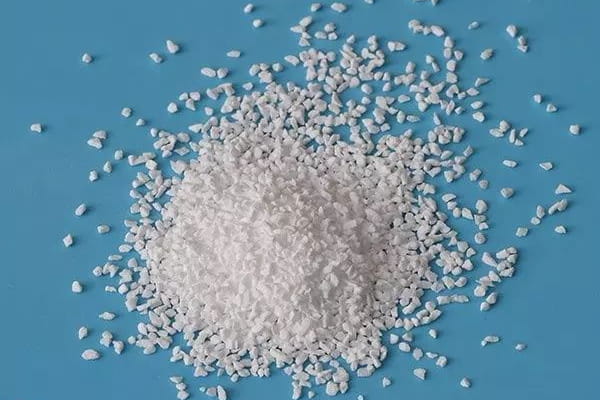Calcium hypochlorite, commonly used in disinfection applications, is a powerful compound known for its ability to eliminate harmful pathogens in water. Whether you’re treating drinking water, sanitizing swimming pools, or disinfecting surfaces, calcium hypochlorite has proven to be an effective and efficient solution. However, many users may not realize that the effectiveness of calcium hypochlorite is influenced by several external factors, one of the most important being water temperature. Understanding how temperature affects the disinfection process can help consumers optimize their usage and achieve better results.

How Calcium Hypochlorite Works
Before diving into the relationship between water temperature and disinfection efficiency, it’s important to understand how calcium hypochlorite works. When calcium hypochlorite is dissolved in water, it releases chlorine, which acts as the primary disinfectant. This chlorine kills bacteria, viruses, and other microorganisms by disrupting their cellular processes, rendering them harmless.
The amount of available chlorine in the water directly affects the disinfection potential. But temperature is a key factor that determines how quickly the chlorine is released and how long it remains active in the water. This interaction between temperature and chlorine availability plays a crucial role in the overall effectiveness of calcium hypochlorite tablets.
The Impact of Water Temperature on Disinfection
Water temperature has a direct effect on the rate of chemical reactions, and the disinfection power of calcium hypochlorite is no exception. Here’s how different temperatures can influence the outcome:
1. Low Water Temperatures (Below 15°C or 59°F)
In colder water, the chemical reactions involved in chlorine release slow down significantly. This means that in cooler water, it takes longer for calcium hypochlorite to dissolve and release chlorine. As a result, the disinfectant will take more time to work, and it might not be as effective in killing pathogens within a short period.
However, cold water also slows down the rate at which chlorine is consumed, which means that once chlorine is released, it may remain active for a longer period. This could be advantageous in scenarios where a slower but prolonged disinfection process is needed.
2. Moderate Water Temperatures (15°C to 30°C or 59°F to 86°F)
At moderate temperatures, calcium hypochlorite performs most effectively. The rate of chlorine release is balanced, ensuring that enough chlorine is available to disinfect the water efficiently. For most common disinfection tasks, such as pool cleaning or surface sanitizing, maintaining water within this temperature range will yield optimal results. This is why many experts recommend keeping water temperatures in this range when using calcium hypochlorite tablets.
3. High Water Temperatures (Above 30°C or 86°F)
In warmer water, the reaction rates increase dramatically, meaning that calcium hypochlorite dissolves quickly and releases chlorine at a faster rate. While this may sound beneficial, there are drawbacks. The rapid release of chlorine can lead to faster dissipation, meaning the disinfectant might not stay active long enough to effectively neutralize all harmful microorganisms. In high-temperature environments, chlorine can also be lost more quickly through evaporation, reducing the overall concentration of the disinfectant in the water.
Moreover, high temperatures can also accelerate the breakdown of chlorine into by-products such as chloramines, which are less effective at disinfection and can cause unpleasant odors or irritation.
Best Practices for Optimizing Disinfection with Calcium Hypochlorite
Now that we understand the relationship between water temperature and the effectiveness of calcium hypochlorite, let’s look at some practical tips to ensure optimal usage:
1.Monitor Water Temperature:
Always check the water temperature before using calcium hypochlorite. For best results, aim for moderate temperatures (between 15°C and 30°C). If the water is too cold, consider increasing the dosage slightly or allowing more time for the disinfection process to take place.
2.Adjust Dosage Based on Conditions:
In colder temperatures, you may need to increase the amount of calcium hypochlorite used to achieve the desired chlorine concentration. Conversely, in warmer conditions, be mindful of rapid chlorine loss and consider using stabilizers or applying smaller, more frequent doses.
3.Use in Combination with Other Methods:
In extremely hot environments, it may be beneficial to combine calcium hypochlorite with other disinfection methods, such as filtration, to ensure complete sanitation.
Where to Buy Calcium Hypochlorite
If you’re looking to buy calcium hypochlorite for your disinfection needs, it’s essential to choose a reliable supplier. The quality of calcium hypochlorite can vary, and working with a trusted source ensures that you get a product that is effective and safe for use.
Choosing a Calcium Hypochlorite Tablets Supplier
When selecting a calcium hypochlorite tablets supplier, consider factors such as the supplier’s reputation, product quality, and customer reviews. A reputable supplier will provide detailed information about the product’s purity and instructions for proper use, ensuring that you get the best results. Look for suppliers that offer comprehensive support and guidance, especially if you’re using the product for the first time.
Conclusion
Water temperature plays a crucial role in determining the disinfection efficacy of calcium hypochlorite tablets. By understanding how temperature affects the release and activity of chlorine, consumers can adjust their usage strategies to ensure optimal sanitation results. Whether you’re treating water for drinking or maintaining a pool, paying attention to temperature, adjusting dosages accordingly, and sourcing high-quality products from a reputable calcium hypochlorite tablets supplier will ensure that you get the most out of this powerful disinfectant.
